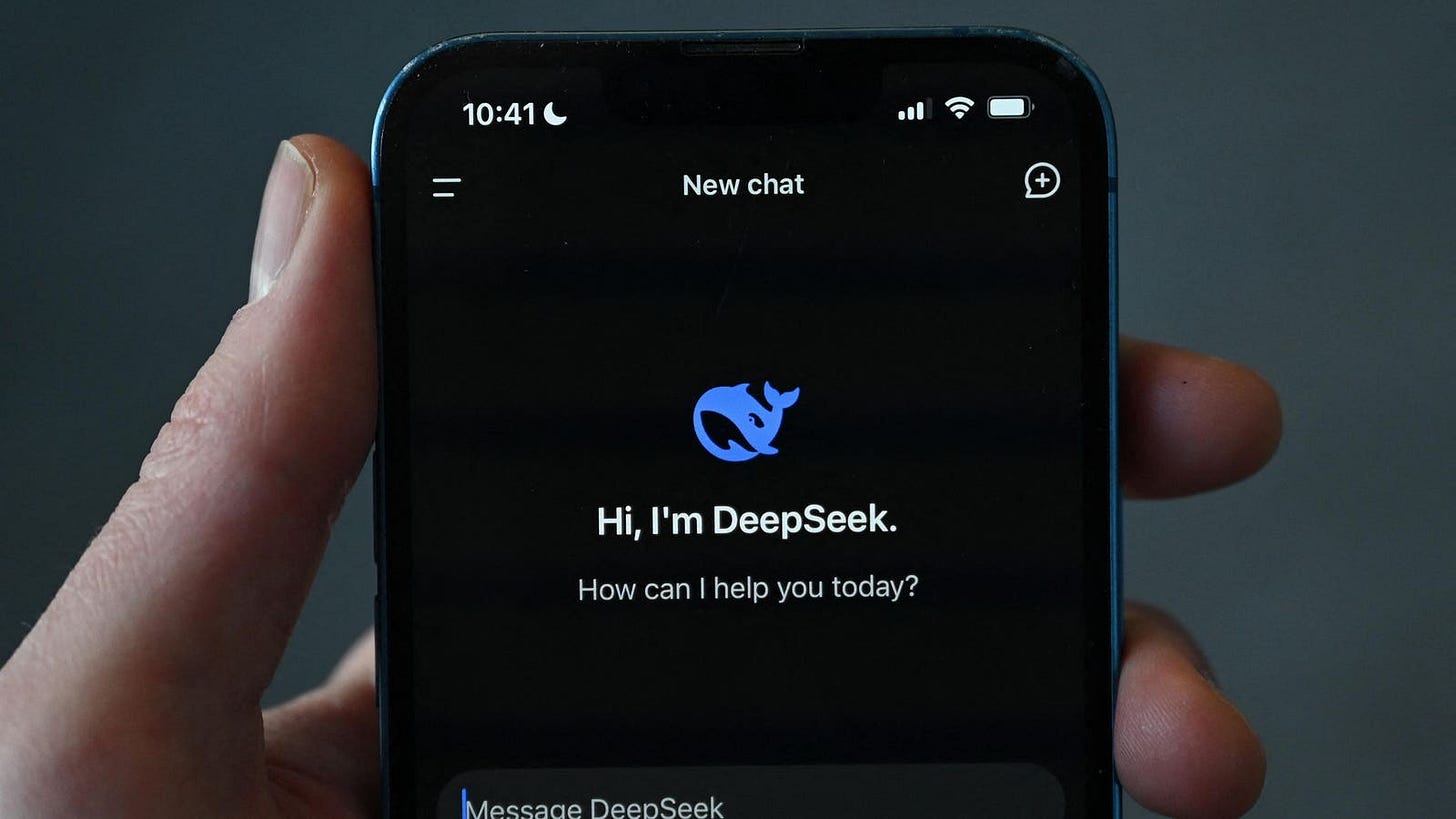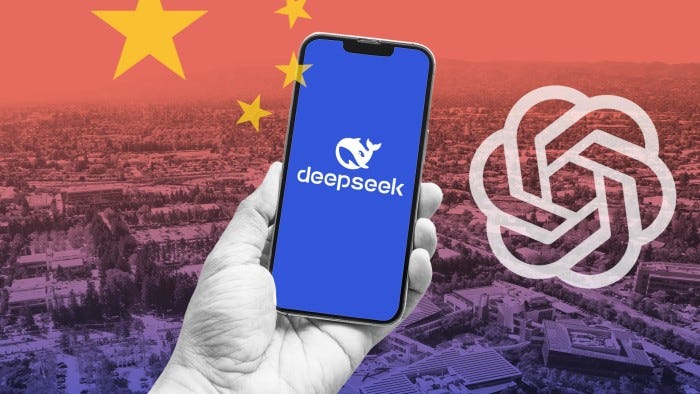AI: DeepSeek recharges Open Source AI debate. RTZ #619
...a nudge that could accelerate AI innovation above large and small AI models
The Bigger Picture, Sunday February 2, 2025
The Open vs Closed debate in this AI Tech Wave has been going on for years, far longer than the two years since OpenAI’s ‘ChatGPT’ moment 11/22. But the DeepSeek moment now deeply discussed over the last few days, may be accelerating the trend to more open source and transparency in the industry, while AI Infrastructure and Capex investments continue to soar. That is the ‘Bigger Picture’ I’d like to discuss this Sunday.
The WSJ provides useful context around both sides of this debate in “Sam Altman’s Answer to DeepSeek Is Giving Away OpenAI’s Tech”:
“CEO of the ChatGPT maker says his company has been ‘on the wrong side of history’ with open-source software”
“OpenAI Chief Executive Sam Altman said he believes his company should consider giving away its AI models, a potentially seismic strategy shift in the same week China’s DeepSeek has upended the artificial-intelligence industry.”
“DeepSeek’s AI models are open-source, meaning anyone can use them freely and alter the way they work by changing the underlying code.”
“In an “ask-me-anything” session on Reddit Friday, a participant asked Altman if the ChatGPT maker would consider releasing some of the technology within its AI models and publish more research showing how its systems work. Altman said OpenAI employees were discussing the possibility.”
“i (sic) personally think we have been on the wrong side of history here and need to figure out a different open source strategy,” Altman responded.”
But it’s not a ‘Done’ decision at the company by any means:
“He added, “not everyone at openai shares this view, and it’s also not our current highest priority.”
It’s a debate at OpenAI that’s woven into its DNA from the beginning a decade ago:
“OpenAI, founded in 2015, said early on that it would publish research and data about its models if it were in the public’s interest. It later switched to a proprietary model, citing competitive pressures and concerns that sharing too much information would create safety risks.”
And been a core source of friction between the heavyweights who started OpenAI in the first place back then:
“Critics including Elon Musk, an OpenAI co-founder who left in 2018 and is now suing the startup, have accused Altman of betraying the company’s original mission.”
Indeed the industry has been veering to less transparency the last couple of years post the ‘ChatGPT’ AI gold rush:
“Since OpenAI launched ChatGPT in late 2022, many AI companies have been wary of disclosing too much information about their technology in a highly competitive industry. The lone major exception is Meta Platforms, whose Llama AI models are partially open-source—part of CEO Mark Zuckerberg’s strategy to maximize influence over how people live and work online.”
Meta has been the lone, BIG champion of Open Source LLM AIs, as I’ve discussed in post here before.
But DeepSeek has reopened this industry debate:
“DeepSeek’s sudden rise in popularity has shaken the AI industry partly because of how cheaply it was made, but also because it is open-source. Its latest model ranks closely behind big name rivals like OpenAI and Google on a closely watched industry leaderboard, raising concerns that developers and customers might choose its technology over ones that are better but cost money.”
“That would have implications for the business models of major AI companies and the U.S.’s competitive position with China.”
Topics I’ve discussed in detail in several posts last week.
OpenAI is more likely to use a mix of open and closed strategies, along with increasing its offerings in its ‘free’ tiers for now:
“Even if it made some or all of its models open-source, OpenAI could continue charging for the premium versions of ChatGPT. The app is far-and-away the most popular among consumers and is a major source of OpenAI’s revenue.”
“At the same time, giving away its technology to developers and tech-savvy businesses that could modify the code for their own use would help ensure OpenAI remains competitive against DeepSeek and other open-source AI companies.”
Getting the mix right is not an easy decision given the enormous financial stakes ahead:
“Still, such a huge change would carry risks, particularly as OpenAI is in the midst of raising a potentially record-setting $40 billion funding round that would nearly double its valuation to as high as $300 billion.”
There’s more to the intricacies and nuance behind the pros and cons of this issue, with tech industry heavy weights on both sides. Not to mention regulators who’re trying to strike the right balance here, in their focus on modulating tech and AI chip curbs vs China.
That is the ‘Bigger Picture’ to keep in mind in the coming months of this AI Tech Wave. Stay tuned.
(NOTE: The discussions here are for information purposes only, and not meant as investment advice at any time. Thanks for joining us here)







